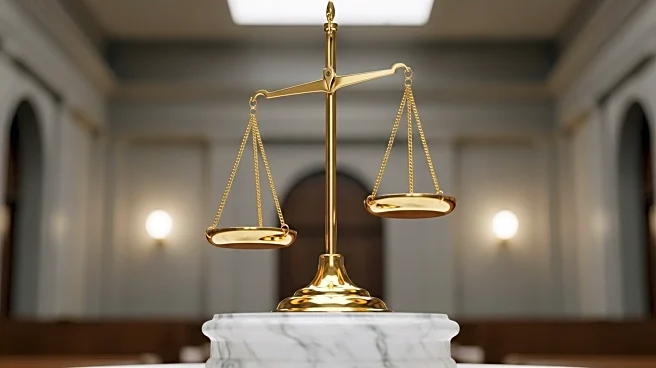What's Happening?
President Trump's administration has filed an appeal against a ruling that prevents him from dismissing Federal Reserve Governor Lisa Cook. The appeal follows a decision by U.S. District Judge Jia Cobb, who ruled that the president's authority to remove Fed governors is limited to actions taken during their tenure. The administration argues that Trump has the right to fire Cook based on allegations of mortgage fraud related to properties she purchased before joining the Fed. Cook's attorneys contend that the dismissal is unlawful, as Fed governors can only be removed for cause, typically involving poor performance or misconduct. The case may soon reach the Supreme Court, which has previously allowed Trump to dismiss board members of other independent agencies but has indicated that the Federal Reserve may have different constraints.
Why It's Important?
The appeal highlights ongoing tensions between the executive branch and the traditionally independent Federal Reserve. If successful, Trump's ability to replace Cook could shift the balance of power within the Fed's governing board, potentially influencing monetary policy decisions. Economists generally favor independent central banks, as they can implement unpopular measures like interest rate hikes to control inflation without political interference. The outcome of this case could set a precedent for presidential authority over the Federal Reserve, impacting future administrations and the stability of U.S. monetary policy.
What's Next?
Governor Cook is scheduled to participate in an upcoming Federal Reserve meeting, where a reduction in the key short-term interest rate is anticipated. The appeal process may lead to further legal scrutiny, potentially reaching the Supreme Court. Stakeholders, including economists and political leaders, will closely monitor developments, as the case could redefine the limits of presidential power over independent agencies like the Federal Reserve.








